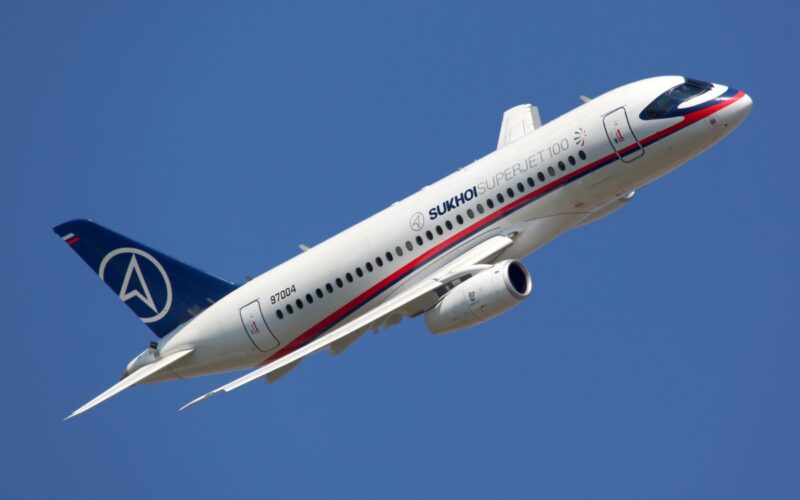The accuracy of navigational databases used by the Sukhoi Superjet 100 fleet operated by Russian airlines has been the subject of controversy, according to Russian media reports.
Russian business newspaper Kommersant reported on May 24, 2023, that airlines operating the Superjet 100, including the country’s largest operator of the type, Aeroflot subsidiary Rossiya, had complained about deficiencies in the navigational databases provided by the only approved domestic supplier, a company called “Avia-briefing”.
Rossiya’s pilots had reportedly detected mistakes with certain regularity when using these systems while operating domestic flights, although, according to Kommersant’s sources, those issues were of a non-critical nature.
Until 2022, Superjet 100 aircraft had reportedly used databases provided by Western suppliers such as Thales, Lufthansa Systems (which offers a suite of systems called Lido) and Jeppesen (a Boeing subsidiary), but they had since switched to domestic suppliers.
Airlines requested that Irkut, the manufacturer of the Superjet 100, look at the possibilty of accessing other databases, namely those offered by another Russian supplier called “State Air Traffic Management Corporation of the Russian Federation” (or “ГК по ОрВД” by its Russian initials), a government-owned entity providing air navigation and related services.
The problem with this request was that although a version of the database for use on commercial aircraft reportedly exists, the proposed alternative system appears to not yet have been approved for use on the Superjet at the time these reports became public.
In a twist of events, however, the Moscow News Agency reported on May 25, 2023, that Rosaviatsia, Russia’s civilian aviation authority, is now allowing the use of both systems onboard the Superjet fleet.
According to the ch-aviation database, as of May 25, 2023, there are 13 operators and 132 active Sukhoi Superjet 100 aircraft in the Russian Federation.

